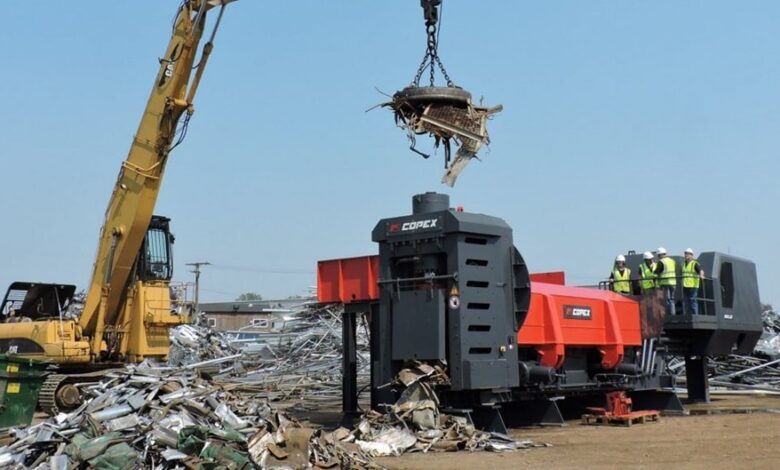Exploring Cost-Effectiveness of Efficient Equipment in the Scrap Car Recycling Industry

The scrap car recycling industry plays a crucial role in environmental sustainability by repurposing valuable materials no longer in service vehicles. Deploying efficient equipment is central to recycling, enhancing operational performance and ensuring cost-effectiveness.
This article examines how investing in modern, efficient equipment can economically benefit businesses in the scrap car recycling sector.
The Importance of Efficiency in Recycling Equipment
Efficient equipment in the scrap car recycling industry includes advanced metal balers, metal shears, shredders, and separation technologies. These tools are designed to handle, process, and sort various materials quickly and with minimal waste. Efficiency in this context means more than just speed; it encompasses energy consumption, operational cost, material handling capabilities, and the quality of the output material.
Cost-Benefit Analysis of Efficient Equipment
- Reduction in Operational Costs: Efficient machinery typically operates at higher speeds and with greater precision. This reduces the time needed to process materials, lowering labor costs and energy expenditure. For instance, modern shredders and shears can process scrap metal faster and consume less energy per ton than older models, leading to significant savings.
- Increased Material Yield and Quality: Equipment that can process materials with high precision and less waste increases the yield of recyclable materials. Higher-quality output materials fetch better prices in the market, thereby increasing revenue. Additionally, improved separation technologies enhance the purity of recycled materials, making them more competitive in the marketplace.
- Longevity and Maintenance Costs: Newer equipment often incorporates the latest technologies that enhance performance and durability. This means longer intervals between maintenance checks, fewer breakdowns, and reduced repair costs over the equipment’s lifespan.
- Environmental Impact and Compliance: Efficient equipment tends to be more environmentally friendly, emitting lower levels of pollutants. This can be crucial for meeting regulatory standards and avoiding fines. Additionally, less energy contributes to lower carbon footprints, aligning with global environmental goals.
Case Studies
Several industry case studies highlight the benefits of investing in efficient equipment. For example, a central European recycling facility reported a 20% reduction in energy costs after upgrading to an electric-drive shredder, which decreased maintenance costs by 30%.
Another case involved a U.S.-based scrap yard that saw an increase in material throughput by 25% after installing a new state-of-the-art baler, significantly boosting their operational efficiency and profitability.
Challenges and Considerations
While the benefits are clear, there are challenges and considerations to be addressed:
- High Initial Investment: The cost of cutting-edge recycling equipment can be prohibitive. Companies must evaluate their financial capabilities and potential return on investment (ROI) before making such investments.
- Training and Adaptation: New equipment often requires specialized training for operators. Ensuring that staff are adequately trained is essential for maximizing the benefits of new technology.
- Technological Obsolescence: With the rapid pace of technological advancements, equipment can become obsolete quickly. Recycling companies must stay informed about industry trends and developments to maintain a competitive edge.
Conclusion
Investing in efficient equipment in the scrap car recycling industry offers significant cost benefits and operational advantages. Despite the initial financial outlay, the long-term savings, improved material quality, and increased processing speed are compelling reasons to modernize.
As the industry evolves, staying updated with technological advancements and integrating them into operations will be vital to maintaining profitability and environmental compliance.




